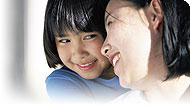Gluten Free
What does following a gluten-free diet mean? That you're embarking on an easy diet with a wide range of health-promoting effects. Instead of dwelling on what you’re giving up, consider that you’re going to enjoy a whole new world of delicious food options to meet your special dietary needs. You’ll be eating seasonally, choosing more fresh fruits and vegetables, focusing on meats, seafood, poultry, legumes, lentils, corn, and rice, and discovering fascinating ancient grains such as quinoa, amaranth, and millet. You’ll be able to eat potatoes, eggs, most cheeses, even chocolate (!)—and enjoy them without guilt because you’ll be taking good care of your body. In fact, you’ll probably end up eating—and feeling—better than ever!
Visit this page for more information about living Gluten Free
---
We carry a large variety of gluten free items, the brands listed below represent just some of the offerings we carry















More Diets
Birth Defects Prevention

About This Condition
Birth defects affect about 120,000 babies born in the United States each year. Birth defects account for more than 20% of infant deaths and contribute substantially to life-long disabilities.
The causes of about 70% of all birth defects are unknown. Various occupational hazards, dietary factors, medications, personal habits, and environmental exposures may contribute to birth defects, but many questions remain about the exact nature of their influence.
Neural tube defects (NTDs) are one of the most common birth defects. NTDs result when the neural tube (which includes the spinal cord and brain) fails to close during the first month of embryonic development. NTDs include several disorders ranging from spina bifida (incomplete closure of the bones around the spinal cord that can lead to paralysis) to a lack of a cranium (the bones of the head) and its contents, called anencephaly. Approximately 4,000 pregnancies in the United States are affected by NTDs each year.
Healthy Lifestyle Tips
Pregnant women should avoid alcohol completely. Alcohol intake by pregnant women can lead to a spectrum of disorders, including fetal alcohol syndrome (FAS), alcohol-related neurodevelopmental disorder (ARND), and alcohol-related birth defects (ARBD). FAS is characterized by growth retardation, abnormal facial features, and mental retardation. In addition, about 80% of children with FAS have an abnormally small cranium, called microcephaly. Children with FAS also have serious lifelong disabilities, including learning disabilities and behavioral problems.1, 2, 3 ARND and ARBD are milder versions of FAS.4
Drinking just one alcoholic beverage per day while pregnant has been associated with increased risk of having a child with impaired growth. The potential for harm increases as larger amounts of alcohol are consumed. Even minimal alcohol consumption during pregnancy can increase the risk of hyperactivity, attention deficiency, and emotional problems in the child.5 No safe level of alcohol intake during pregnancy has been determined.6, 7
There are many medications that a woman should not use during pregnancy. A healthcare practitioner should review all over-the-counter and prescription medications, as well as any nutritional or herbal supplements. For example, the commonly prescribed acne medication, isotretinoin (Accutane®), a synthetic form of vitamin A, can cause severe birth defects if used during pregnancy.
Excessive noise may have damaging effects on a developing fetus. Many pregnant women are exposed to noise in the workplace.8, 9 In one study, the children of women exposed consistently to high levels of occupational noise during pregnancy were more likely to have high-frequency hearing loss (identified at four to ten years of age) than were children whose mothers were not exposed to such noise.10 Noise exposure at these excessive levels (i.e., 85 to 90 decibels) occurs in many occupations, even among women wearing protective hearing devices. Other environmental sources of excessive noise include rock concerts, boom boxes, car stereos, and airport jet traffic.
Women who are obese prior to pregnancy are at increased risk of having an NTD-affected pregnancy. One study showed a twofold or greater risk of NTD-affected pregnancy among women who were obese.11
Copyright © 2025 TraceGains, Inc. All rights reserved.
Learn more about TraceGains, the company.
The information presented by TraceGains is for informational purposes only. It is based on scientific studies (human, animal, or in vitro), clinical experience, or traditional usage as cited in each article. The results reported may not necessarily occur in all individuals. Self-treatment is not recommended for life-threatening conditions that require medical treatment under a doctor's care. For many of the conditions discussed, treatment with prescription or over the counter medication is also available. Consult your doctor, practitioner, and/or pharmacist for any health problem and before using any supplements or before making any changes in prescribed medications. Information expires December 2025.











